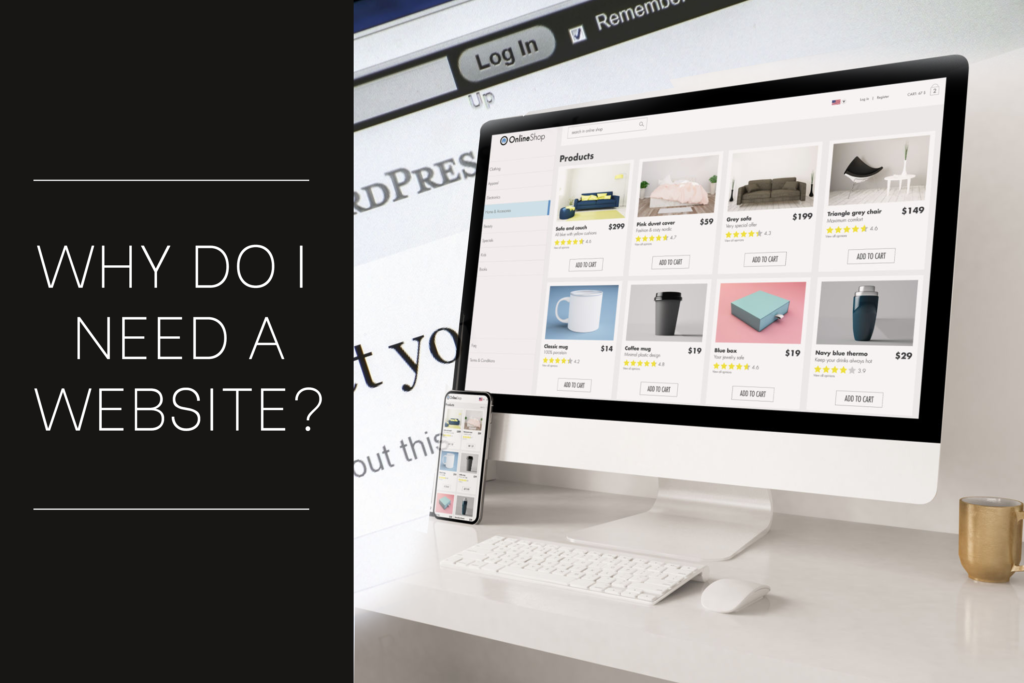There’s a crucial need for a website in the present day world if you’re handling small business or providing a service in today’s technology dominant world. You’re missing out majorly if you still haven’t thought of investing in making a good website. But if you’re considering it, you’ve come to the right place. Here we will talk about FIVE reasons WHY DO ONE NEED A WEBSITE.
1.GROWTH.
Website is a very important strategy for GROWTH of your business (let it be expanding from out of your locality or Internationally). Customers from all around the globe can discover & interact with your website.
A survey was conducted on Effect on Growth when small & nurturing businesses have launched their website & Approximately 80 percent of the companies observed good growth in their business. 97 percent among them recommend using websites for your domain.
Your competitors most definitely have a website and they are at an advantage. So what are you waiting for?
2. SHOWS PROFESSIONALISM
You must have heard about this famous phrase “First Impression is the Best Impression”. This applies here too. Users will most likely do business with companies having an engaging & well designed website & they would presume that you have some professional ethics.
If you don’t have a website, people might doubt the credibility of your service in the first place, let alone trusting and thinking of doing business with you. Research shows that around over 70 percent of consumers judge the credibility of a company based on the design and quality of its website.
It is also a perfect place to show off your achievements and awards. On top of that, you have an option to get a custom branded email address along with your website which adds to a level of professionalism. Now you won’t have to search for important mails related to your business in the inbox of your personal address!
3. ONLINE & ACCESSIBLE BUSINESS CARD.
There’s so much hassle of managing business cards. Most of the small businesses would start handing out business cards made of thick paper or plastic. But What if the customer misplaced the card? There’s a very high probability of this case. It can also wear out right? Also you’re giving a part of your earnings to make more of these physical cards.
Well, if you already have a website, there’s absolutely no point in doing this much work. Your website is an ONLINE & ACCESSIBLE BUSINESS CARD. It will be available in hand (i.e in phones) 24×7. Customers can visit your website and refer to the important information like services offered, pricing, Employees, contact information, etc anytime. Including your social media & portfolio links on your website can be beneficial & would help you increase your social media footprint & amass new followers.
This is way better than a physical business card right?
4. TAKING ADVANTAGES FROM THE SEARCH ENGINE.
In earlier times, when the impact of technology wasn’t so profound, There were very limited ways (such as through yellow pages, referrals) in which more people could discover your business. But times have changed & now you can use the internet at your disposal to do promotion work for dirt cheap.
Search Engines is one of the major sources for most of the traffic on your website. Clients & Customers would search for services on Google. And having a website can also get you in the search engine listing.
There’s one important term called SEARCH ENGINE OPTIMIZATION or (SEO’s) which is very crucial for discoverability of your website through search engines. If you’ve done proper SEO, your website would come among one of the top searches on Search Engines. New customers can find your website by keywords related to your services with ease.
Imagine your website appearing as the first result on Google!!
5. AIM AT SPECIFIC GROUP OF AUDIENCE.
Most of the websites have dashboards which can give you an insight of the demographics of your customers. Researching demographics can give you the idea of what type of consumers are being attracted towards your website.
Here are some
- The number of people visiting your website (regular visitors).
- For how long do people visit your website content (average time on site).
- The number of people who left without reading the page they landed on (bounce rate).
- For how long do people visit your website content (average time on site).
- How many times a page was read or visited by users (Page views or impressions).
Researching demographic data will help you find out how you can strategically target your customers. You can know what kind of content users like and how you can improve the user experience so that they stay. As a result, you will know how the website can be refined in terms of User Experience and then work towards creating an appealing website.

